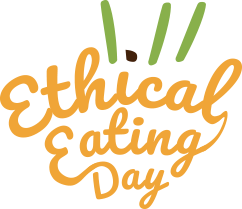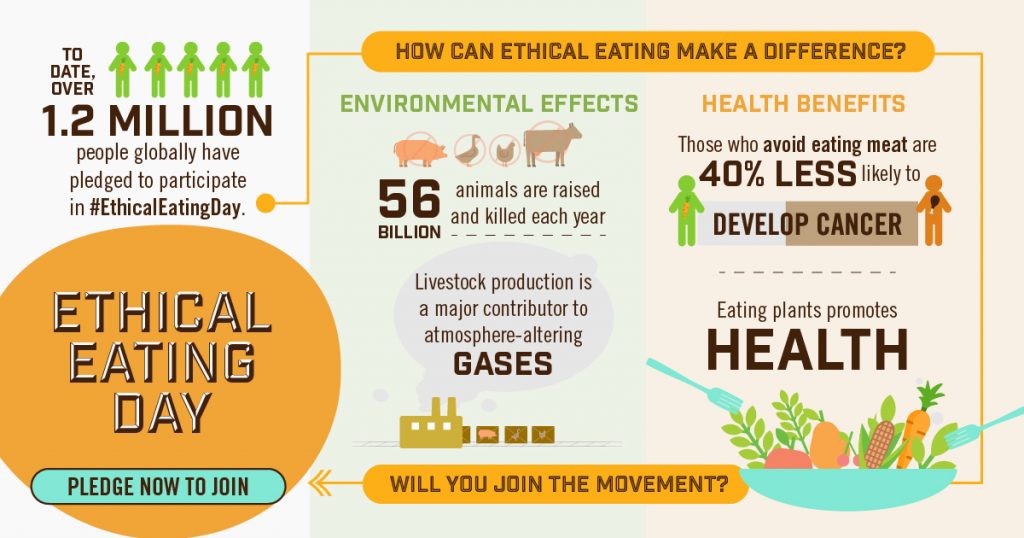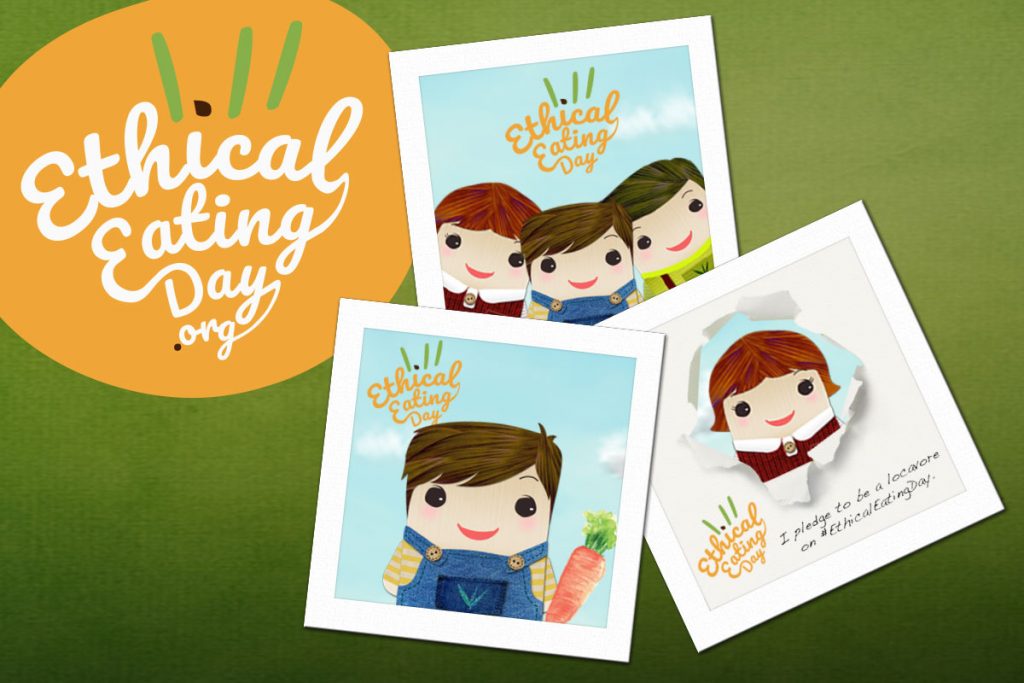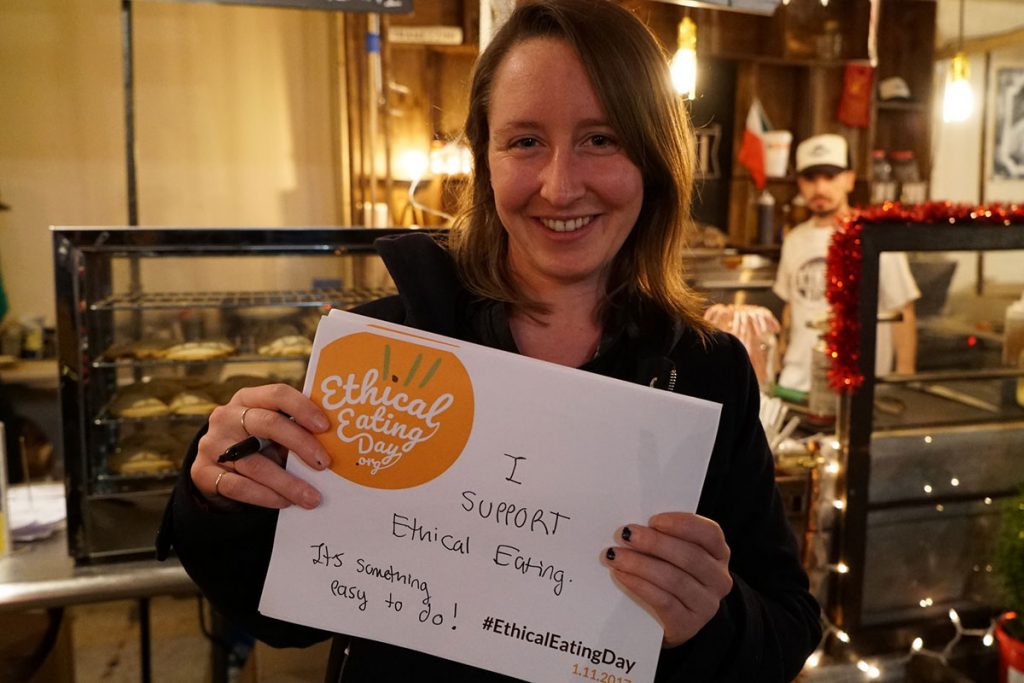
new pledges since January 11, 2019!
Comprométete y participa en el Día de la Comida Ética
Ethical Eating Day is a global day of awareness that draws mindful attention to the impact our personal choices as a society can have on the environment, wildlife, and each other. It does so by empowering individuals across the globe to learn more about these crucial issues that affect us all and provides some simple ways to make a big difference.
As part of our special collaborative efforts with Ethical Eating Day, we’ve launched a brand new way to show your love for the environment and all of Earth’s creatures. This activity allows people to share their stories with us as well as recommend local vegetarian businesses that are in need of support. Tell us why you think it’s important to eat vegetarian and ethically in 2022 to get featured in our blog!
Change starts with you and it can start one day at a time. Join us as we unite with Ethical Eating Day on January 11th, 2022.
muchas cosas, pero aquí en Tzu Chi, significa elegir una dieta vegetariana lleno de alimentos cultivados localmente porque tales decisiones previenen el calentamiento global y combaten contra el cambio climático.
El cambio empieza con nosotros y se puede realizar un día a la vez.
Comprométete en ser vegetariano y locavore por solo un día este 11 de enero 2020

Globally, 56 billion animals are raised and killed each year, with grave environmental consequences that contribute to climate change.
Nearly 1/5 of all greenhouse gases are attributed to livestock production – more than what is generated by transportation.
70% of crops grown are fed to livestock, which produce large amounts of waste and methane – a heat-trapping gas more than 25 times more potent than carbon dioxide.
30% of the land on Earth is in some way used to raise the animals we eat, which results in land degradation, loss of biodiversity, air and water pollution, and water shortages.
Going plant-based is not only nutritionally sufficient, but also may reduce the risk of many illnesses.
¿Por qué local?
Al momento de considerar la opción de consumir alimentos cultivados localmente en lugar de aquellos producidos industrialmente, existen algunos datos por considerar:
Más formas de participar
Existen más cosas que puedes hacer para participar en el Día de la Comida Ética, además de comprometerte a seguir la dieta indicada. Ayúdenos a pasar la voz sobre este importante movimiento a través de las redes sociales y únete a nosotros durante eventos locales cerca de ti.

El reto fotográfico “Imagina el cambio”
Muéstranos cómo marcarás la diferencia para obstaculizar la progresión del cambio climático este año. Comparte tus fotos usando el hashtag #EthicalEatingDay. Y, circula la idea entre tu familia y amigos.

Atiende un evento local
Las nueve secciones de Tzu Chi USA organizan eventos especiales a través de todo el país durante el Ethical Eating Day (Comiendo Éticamente). ¡Averigüe qué está sucediendo por su área y únase a nuestros eventos comunitarios divertidos e informativos!
Cada decisión importa
Comiendo Éticamente (Ethical Eating Day) es solo el comienzo. Nuestras decisiones como individuos se suman y tienen un impacto global. Adoptemos un estilo de vida amigable con nuestra madre Tierra y cambiemos el mundo.
Reciba las últimas historias y actualizaciones.
Tzu Chi USA recibirá los ingresos de su donación deducible de impuestos.
Tzu Chi USA recibirá los ingresos de su donación deducible de impuestos.
Video | {{video.length}}